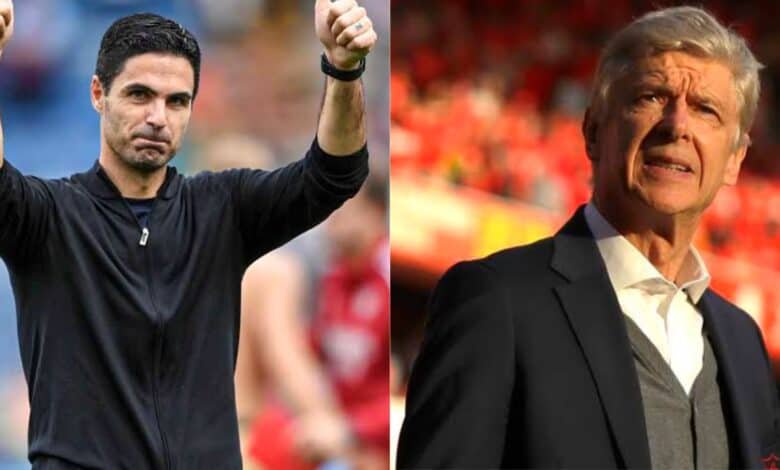
Arsene Wenger, 71, stepped down as Arsenal’s manager in 2018 after 22 years in command and is currently working as FIFA’s director of global football development.
When Arteta retired from playing in 2016, he joined Manchester City as a coach under Pep Guardiola.
Arteta returned to Arsenal as head coach in December 2019 and praises his previous manager by providing him the confidence to pursue a managerial career.
To quote Arteta, “If it wasn’t for him, I wouldn’t be in the position I am today or have had the career I had,” he said at the premiere of “Arsene Wenger: Invincible” on Tuesday night.
This is what Mikel Arteta had to say about Arsene Wenger
When asked whether he became a manager because of Wenger, Arteta said, “100%. I was still young and had my thoughts, but he was a different level of influence in terms of how I saw the game. He was really effective at communicating what a football club meant to the players, and he posed several questions to me. As a result, I began to study and take coaching much more seriously. I’d want him to be more visible at the club. I believe the players would enjoy, profit from, and be motivated by having him around, and I believe it would be a big lift for the team.
It was so intense for him for over 20 years, and you need to step away a little bit, but I believe having dad more present would be really great for all sides.”
Wenger has not ruled out a return to football management, implying that his next position may be in command of a national team.
The Frenchman won three Premier League championships and seven FA Cups with Arsenal, as well as reaching the Champions League final and memorably coaching the Invincibles in 2003-04.
It’s possible that he’s “mad enough to be wild and make a stupid decision,” he said, “but I’m committed not to do it right now, maybe a national team.”
“But for now, I’m engaged with FIFA initiatives that I want to see through to completion, and that’s more beneficial to me right now.”
Wenger also admits that he understands why some people are apprehensive about his plans to stage a World Cup every two years, but he argues that it is in the best interests of football.
UEFA has often stated its opposition to the plans, with UEFA head Aleksander Ceferin even suggesting that European nations boycott the biannual World Cups.
The European Leagues, of which the Premier League is a part, and the European Club Association are also opposed to the ideas.
“I understand [the reservations],” Wenger added. “I proposed the international match schedule, and the World Cup every two years is merely a small portion of it.”
“I expect a clearer distinction between the national team and club football, as well as fewer qualifications. I desire greater simplicity, clarity, and a more contemporary, optical vision of the calendar, but it won’t come until around 2024.
“That’s my suggestion. I respect everyone’s viewpoint, and the choice is not mine. The choice will be determined by the 211 nations of the whole football globe.”




